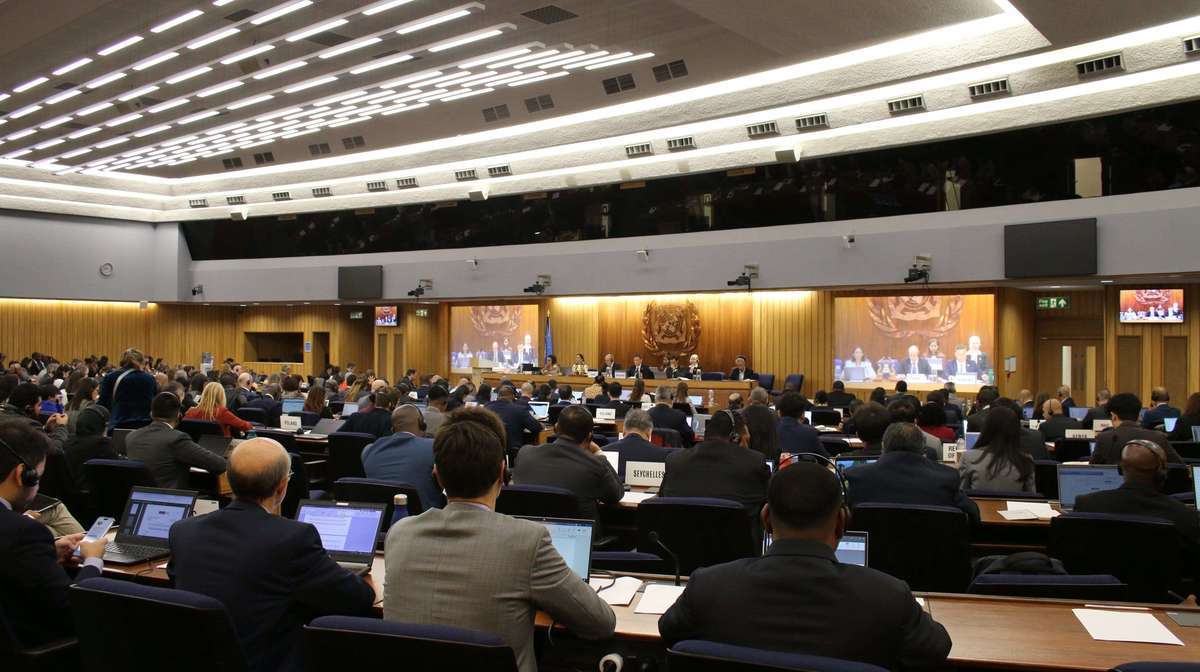IMO’s GHG working group drops universal levy from revised text – Lloyd's Register
The IMO’s Intersessional Working Group on the Reduction of Greenhouse Gas Emissions (ISWG-GHG) has proposed to remove the universal GHG levy from its mid-term measures.
 PHOTO: Representatives from member states at the IMO’s Intersessional Working Group on the Reduction of GHG Emissions from Ships meeting in London. X of @IMOHQ
PHOTO: Representatives from member states at the IMO’s Intersessional Working Group on the Reduction of GHG Emissions from Ships meeting in London. X of @IMOHQ
The ISWG-GHG presented a “compromise text” of a draft amendment to MARPOL Annex VI at its 19th meeting this week. This amendment has outlined the introduction of Chapter 5 to support the IMO’s net-zero emissions framework.
According to classification society Lloyd’s Register, the draft text has removed the IMO’s highly publicised greenhouse gas (GHG) levy as an economic measure. The levy was originally framed as a flat-rate contribution.
In place of the levy, the text has included a “tiered” mechanism that would require vessels to reduce their GHG energy intensity to meet mandatory regulatory targets through to 2050.
This system will require vessels to either meet compliance directly, or balance shortfalls “in two tiers of deficiency," Lloyd’s Register said. Balancing can be achieved by purchasing compliance units, or credits trade between undercompliant and overcompliant vessels through pooling and banking mechanisms. This would be similar to provisions under the EU’s FuelEU Maritime regulation.
Island nations have expressed disappointment over the removal of the levy and have vowed to continue pushing for its inclusion during final negotiations at MEPC 83 next week.
“Our Pacific delegates will continue to push for a just and equitable transition - because without a levy, the shipping transition risks being delayed, leaving the most vulnerable behind,” Micronesia Centre for Sustainable Transport has written.
In addition, the draft text excludes a previously proposed surcharge for non-compliance with GHG fuel intensity targets.
It has also added “a reward to incentivise the take-up of very low GHG emissions fuels and technologies, aiming to further assist in bridging the price gap between alternative fuel solutions and traditional fossil bunker fuel,” Lloyd’s Register has said.
Ratifying nations will now negotiate the terms and refine the proposed text to finalise it for approval at MEPC 83, with adoption aimed for October 2025 and implementation in 2027.
By Konica Bhatt
Please get in touch with comments or additional info to news@engine.online





